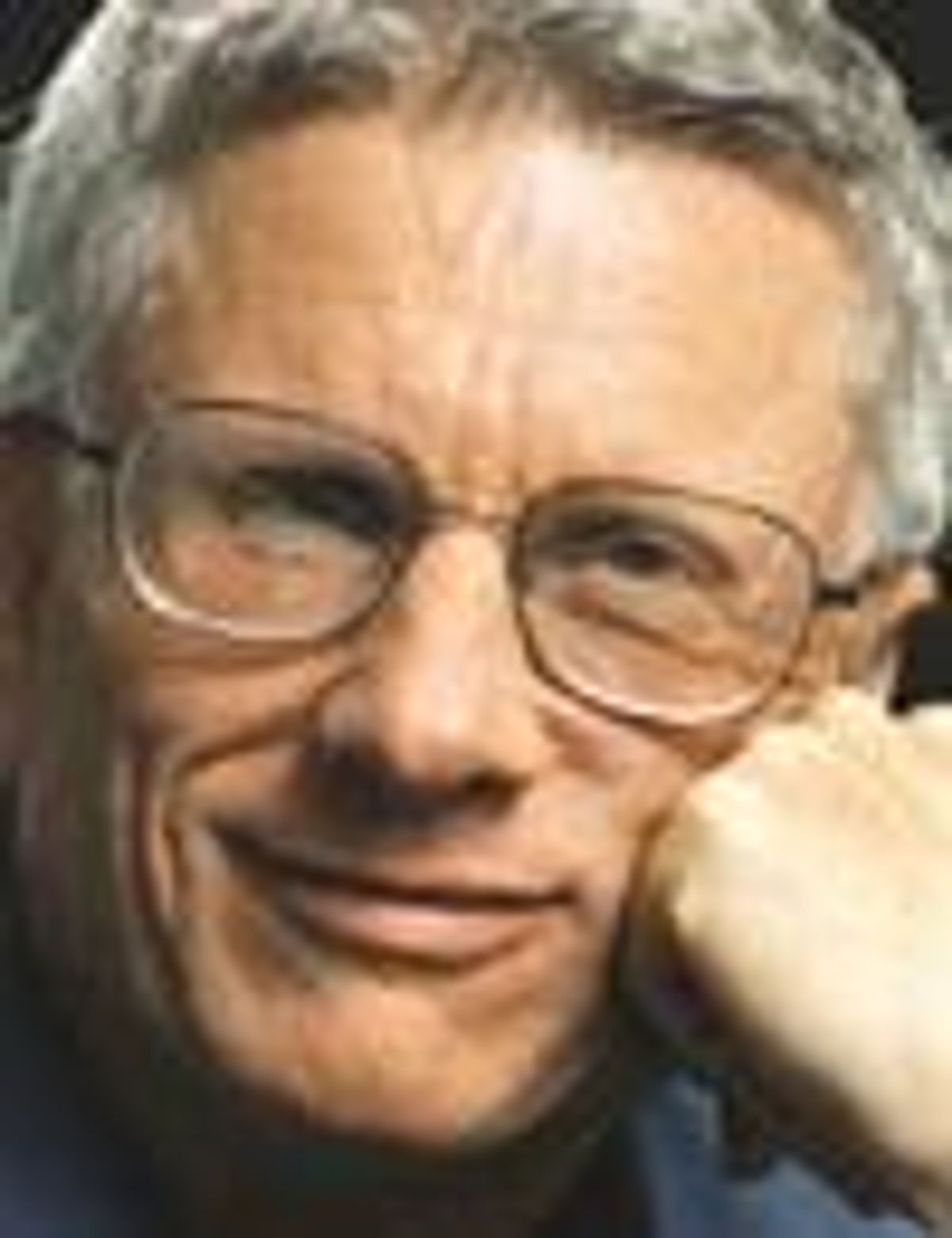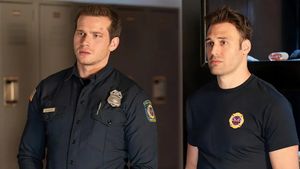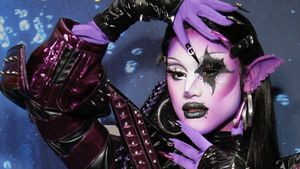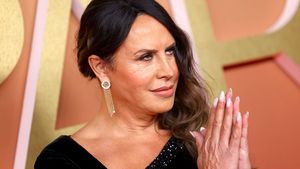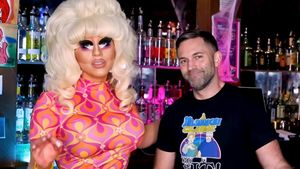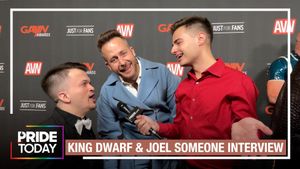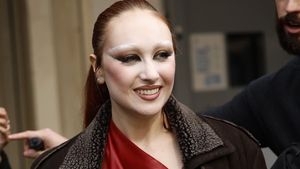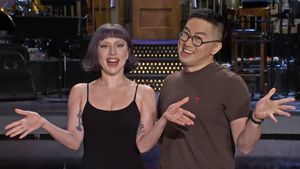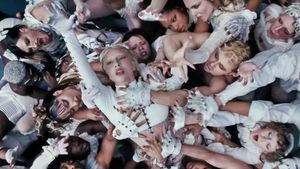As the
groundbreaking film Brokeback Mountain faces its
brightest spotlight yet on Oscar night March
5--eight nominations, including Best
Picture--its unique place in our cultural history is
already secure. With its wave of critical raves and
awards, venomous counterreaction and talk of a
heartland backlash, and endless jokes about "the gay
cowboy movie," there's never been
anything quite like it.
Yet amid all the
media coverage and general hoopla, a vital link in its
evolution has been largely overlooked: the unprecedented
emergence of gay performers, entertainment executives,
and other key figures from the Hollywood closet that
took place long before the short story by Annie Proulx
was turned into the most talked about American movie since
Mel Gibson's The Passion of the Christ.
This personal exodus from secrecy and shame by so many
in Hollywood's creative community has had a
profound impact on movies, TV programming, and our culture
in general, with Brokeback Mountain only the
latest and most notable example. Brokeback may
have been principally made by heterosexuals, but only
after Hollywood's most fearless homosexuals paved the
way.
Ten or 15 years
ago, Brokeback Mountain would not have reached the
production stage, certainly not as a mainstream Hollywood
movie with a major director like Ang Lee and name
actors like Heath Ledger and Jake Gyllenhaal in the
leading roles. Prior to Brokeback, Hollywood
produced other prominent gay-themed films--silly
comedies like The Birdcage, with its flamboyant
gay characters, and earnest message dramas like
Philadelphia, in which the gay protagonist dies of
AIDS complications. But before Brokeback, there had
never been a major motion picture that portrayed love
between men so sensitively and unabashedly, giving it
as much due on the big screen as heterosexual romance
has always been accorded.
It didn't
happen by accident, or in a social or political vacuum. It
comes after decades of increasing gay activism, gay legal
and political progress, and gradual changes in the
media's coverage and the public's
perception of homosexuality. Largely forgotten in this
cultural transformation is the controversial role
played by "outing"--a term coined
by militant gay activists who began exposing closeted
celebrities and other public figures as a potent new
political weapon in 1989.
Outing got its
start in the pages of OutWeek, a militant gay New
York weekly that began exposing influential public figures
who were known to be secretly gay. The idea was to
increase gay visibility, and with it political power,
and to bolster the effort for more AIDS funding,
prevention, and treatment. OutWeek's bold
approach caught on with other gay activists and struck
abject fear into Hollywood. As the mainstream media
covered the issue, the names of "outed"
individuals soon found their way into publications
like Newsweek, People, and Daily
Variety. How to cover this phenomenon had mainstream
editors flummoxed, because journalists had
historically protected certain celebrities by falsely
portraying them as heterosexual, a time-honored
collusion between the entertainment industry and the media
that many gay activists felt reinforced the stigma and
validated the shame.
The alarmed
reaction to outing wasn't limited to Hollywood or the
mainstream press; the debate in the gay subculture was
volatile and divisive. For several years after
OutWeek began naming names, exposing
someone's homosexuality against their wishes was
widely regarded as a reckless and unfair invasion of
privacy. Its proponents were vilified as malicious,
irresponsible, or simply envious of the secretive
public figures they'd suddenly reduced to trembling.
It now seems
clear that outing has been considerably less damaging to
careers than many predicted. In a radio interview in 2003,
the year actor Richard Chamberlain first acknowledged
his homosexuality publicly, he recalled being
"terrified" in the early '90s that his
career would end after seeing a rumor of his
homosexuality in print, but added, "In the end,
it didn't change my life hardly at all."
Whether right or wrong, fair or unfair, outing has
accomplished much of what its proponents had
predicted, focusing attention on gay rights and the pathos
of the closeted life as never before, while making it
easier for more people in all walks of life to come
out on their own.
The most
measurable impact has arguably taken place in Hollywood,
where the number of unapologetic lesbians and gay men
who work behind or in front of the camera has grown
from a brave few to literally hundreds, if not
thousands. As more of the industry's movers and
shakers came out, they gained new respect from many of
their colleagues and found their clout expanded rather
than diminished. This newfound freedom allowed them to
support worthy gay-themed projects without the fear for
their reputations and careers that would have
discouraged or paralyzed them in earlier years. This
led to a dramatic increase in gay characters and
themes in TV and film, which has had its own ripple effect
on the public consciousness.
Today,
sympathetic gay characters on-screen are no longer an oddity
or aberration. It's almost routine now to hear
gay men and women thank their partners when they
accept their Oscars, Emmys, and other awards, quite
comfortable being themselves before their colleagues and
tens of millions of viewers at home. And while no
major stars--action or romantic
leads--have yet found the courage to come out in the
prime of their careers, plenty of other Hollywood
personalities have.
At the end of the
1980s, it was still difficult to name a performer of
much stature who was avowedly gay. Today, the
"out" list burgeons with well-known
talent: Ellen DeGeneres, Sir Ian McKellen, Melissa
Etheridge, Rosie O'Donnell, Elton John, Nathan
Lane, Lily Tomlin, Alan Cumming, Harvey Fierstein,
k.d. lang, George Michael, Rupert Everett, Bruce
Vilanch, Sandra Bernhard, Alec Mapa, Chad Allen, B.D. Wong,
Tab Hunter, George Takei, and many more. Add to these
the names of influential executives and creative
forces like David Geffen, Scott Rudin, Nina Jacobson,
Tony Kushner, Gus Van Sant, Lee Rose, Clive Barker, Ilene
Chaiken, Bill Condon, Craig Zadan, Neil Meron, Todd Haynes,
Carolyn Strauss, Alan Ball, Paris Barclay, Terrence
McNally, Marc Cherry, Craig Lucas, Paul Rudnick,
Darren Star, and Charles Busch, among countless
others, and the continuing impact of Hollywood's new
openness becomes especially clear.
Not too many
years ago, printing these names in this context would have
been unthinkable. Today, it's lost its potential to
shock, titillate, or cause harm--one of the
goals of outing in the first place. Love it or hate
it, outing has made it safer for people everywhere to
express themselves openly and honestly, and in
Hollywood most of all.
Which brings us
back to Brokeback Mountain. To many filmgoers, it
may just be another well-told drama with a gay twist. But to
gay men and women who understand how myths and dreams
are shaped by cinema, and who long to see their
stories told by Hollywood, Brokeback Mountain is
an important landmark in their largely untold history. It
comes only after Hollywood's bravest kicked
open their closet doors, stuck their necks out, and
made their voices heard.
Without these
trailblazers, Brokeback Mountain might still be an
acclaimed but problematic short story, waiting to be filmed.
